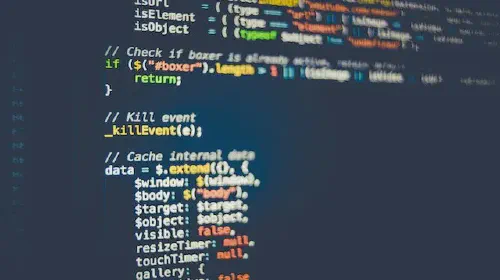The Impact of Quantum Computing on Cybersecurity - Threats and Opportunities
Salomon Kisters
Jun 22, 2023This post may contain affiliate links. If you use these links to buy something we may earn a commission. Thanks!
Quantum computing has been an emerging field for years now. It is a new and powerful computing paradigm, promising to revolutionize the world as we know it. As computing has elevated itself to play an essential role in our lives, it has also increased our vulnerability to cyber-attacks. With traditional computing methods failing to protect us from cyber threats, quantum computing has been seen as a beacon of hope.
However, the quantum revolution is bound to affect not just computing but cybersecurity as well. The power that quantum computing has to solve problems that current computers cannot allow attackers to break the encryption that protects our data. The potential of quantum computing to derive the private key from a public key can pose severe security risks.
In this article, we will explore the implications of quantum computing on cybersecurity. We will delve into the consequences of quantum computers on encryption methods and how organizations need to prepare themselves for the era of quantum computers. As quantum computing becomes a reality and the threat to cybersecurity grows, it’s crucial to have a clear understanding of how it can change the cybersecurity landscape.
The basics of quantum computing
Quantum mechanics is the branch of science that deals with particles that are both waves and particles simultaneously. Quantum computing uses this principle to create qubits, the building blocks of quantum computers. Unlike classical bits, which can only exist in two states- either 0 or 1, qubits can be in multiple states simultaneously, known as superposition.
The power of quantum computing lies in its ability to perform computations using all the possible combinations of qubits simultaneously. This allows quantum computers to solve problems that would take traditional computers exponential time or be impossible for them to solve.
To develop quantum computing, scientists are exploring various technologies that can create and control qubits, such as ion traps, superconducting qubits, and topological qubits. While quantum computers are still in a nascent stage, they have already demonstrated their ability to perform certain computations that conventional computers cannot.
The potential of quantum computing to break conventional encryption methods is not just theoretical but practical. It has led researchers to focus on developing new encryption methods, such as post-quantum cryptography, that are resistant to quantum computing attacks. As organizations increasingly rely on encryption to protect sensitive data, the threat posed by quantum computing is a growing concern.
The current state of cybersecurity and its limitations
Cybersecurity is a critical concern for organizations across the globe as cyber threats continue to evolve and become more sophisticated. With the proliferation of data and devices, securing sensitive information has become more challenging than ever before. Organizations need to protect their data not just from external threats but also from internal ones, such as rogue employees.
While there have been significant improvements in cybersecurity over the years, the current state of cybersecurity still has its limitations. Most cybersecurity solutions rely on encryption technologies, such as AES and RSA, to protect data. These encryption technologies are based on mathematical problems that are easy to solve using classical computers, but hard to solve using quantum computers.
The limitations of current encryption methods mean that organizations need to develop new strategies to protect their data from quantum computing attacks. While some organizations have started to explore post-quantum cryptography, the adoption of these solutions is still in its early stages, and there is a lack of consensus on the best approach.
In addition to the limitations of encryption technologies, there are other challenges that organizations face in securing their data. For example, the human factor remains a significant weak link in cybersecurity, as employees can unwittingly compromise security through negligent or malicious actions.
How quantum computing can revolutionize cybersecurity
The advent of quantum computing has the potential to revolutionize the field of cybersecurity. Quantum computers can perform calculations at a speed that is orders of magnitude faster than classical computers. This speed advantage means that quantum computers can easily break many of the encryption methods that are currently used to protect data.
However, quantum computers can also be used to create new, more secure encryption methods. For example, quantum key distribution (QKD) is a method of transmitting secret keys that is based on the principles of quantum mechanics. QKD is inherently secure because any attempt to eavesdrop on the transmission will be detectable.
Another approach that is being explored is the use of quantum-resistant cryptography. This involves developing encryption methods that are resistant to attacks by both classical and quantum computers. While there are several proposals for post-quantum cryptography, the implementation of these methods will require significant research and development.
Quantum computing can also be used to enhance cybersecurity by improving threat detection and response. For example, quantum machine learning algorithms can be used to detect anomalies in large datasets that may indicate a cyber attack. Quantum computing can also be used to simulate the behavior of cyber attackers, enabling organizations to better understand and prepare for potential attacks.
Threats posed by quantum computing
While quantum computing offers new opportunities to improve cybersecurity, it also poses significant threats and challenges. One of the biggest challenges is the potential for quantum computers to break many of the encryption methods that are currently used to protect data.
As quantum computers become more powerful, they will be able to break even the most secure encryption methods, including those that are used to protect financial transactions and sensitive government communications. This could lead to a massive breach of sensitive data and a loss of public trust in the security of digital communications.
Another potential threat posed by quantum computing is the ability to undermine existing standards for digital signatures. Digital signatures are used to authenticate the identity of individuals and organizations in digital transactions. However, with the power of quantum computing, it may be possible to forge digital signatures and perform other types of identity theft.
Quantum computing also poses a challenge to the design and implementation of new encryption methods. Developing new methods that are resistant to attacks by both classical and quantum computers will require significant research and development. Further, the implementation of these methods may take years, and organizations will need to carefully assess the risks and benefits of adopting new encryption methods.
Finally, the cost of implementing new quantum-resistant encryption methods may be a significant challenge for many organizations. These methods will require new hardware and software, as well as significant investments in research and development.
Conclusion
In conclusion, the potential impact of quantum computing on cybersecurity cannot be overlooked. While it presents many challenges, there are solutions available to mitigate the risks.
Efforts such as developing post-quantum cryptography algorithms, implementing multi-factor authentication, using QKD for secure communication, and raising awareness about the threat, can help bridge the gap in cybersecurity. However, the process of standardizing post-quantum cryptography is ongoing and will take several years.
Organizations and policymakers must continue to work together to keep up with the advancements in quantum computing and implement effective solutions to ensure the security of our digital assets. The future of cybersecurity depends on our ability to stay ahead of the technological curve and adapt to new threa
Stay informed with the latest insights in Crypto, Blockchain, and Cyber-Security! Subscribe to our newsletter now to receive exclusive updates, expert analyses, and current developments directly to your inbox. Don't miss the opportunity to expand your knowledge and stay up-to-date.
Love what you're reading? Subscribe for top stories in Crypto, Blockchain, and Cyber-Security. Stay informed with exclusive updates.
Please note that the Content may have been generated with the Help of AI. The editorial content of OriginStamp AG does not constitute a recommendation for investment or purchase advice. In principle, an investment can also lead to a total loss. Therefore, please seek advice before making an investment decision.

10 Examples of Decentralized Autonomous Organizations (DAOs) - Leading Projects in the Crypto Space
Discover 10 leading examples of Decentralized Autonomous Organizations (DAOs) that are revolutionizing the crypto space. Explore the top projects and their impact on the industry.

What Is Polygon MATIC and How Does it Work?
Polygon MATIC is a layer-2 scaling solution based on Ethereum that allows projects to scale their applications securely and without trusted third parties. Let's explore.

Mobile Payment Apps: Types, Security, Popular Apps & Tips
Learn about different types of mobile payment apps, security features to look for, popular apps like PayPal and Venmo, pros and cons, and tips for safe and effective usage.
Protect your documents
Your gateway to unforgeable data. Imprint the authenticity of your information with our blockchain timestamp